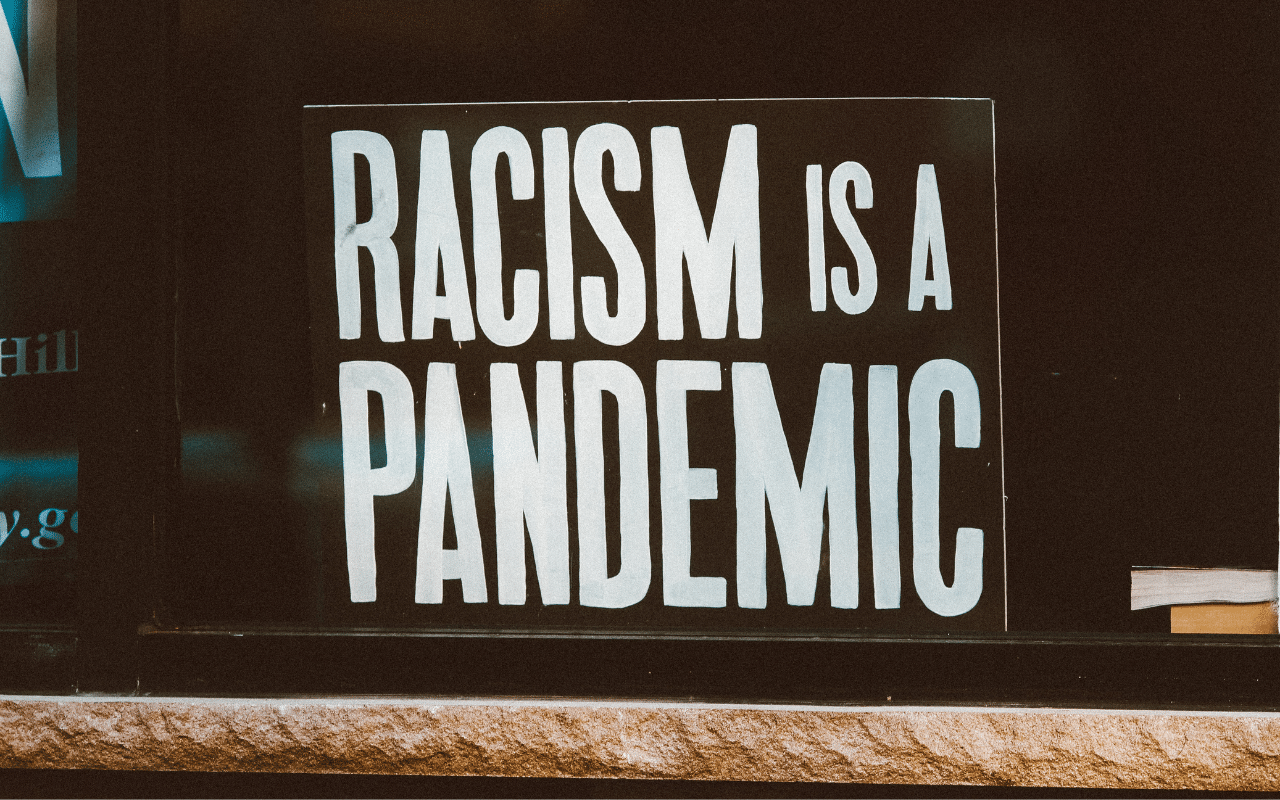
Racism feels like a dirty word— one that lingers in the air after each catastrophic news story or gets muttered uncomfortably at corporate diversity meetings. But most people don’t know what it really means, or at least, they know very little. This discomfort leads to an endless cycle where we are constantly avoiding the conversation, and therefore never actually learning. Wide eyed, tight lipped, full of denial and limited understanding, people often say “Why are we talking about racism anyway?” the moment it’s brought up. A few will go as far as saying “that’s not even a thing anymore.” Maybe that at some point has been you. It’s okay. But it’s exactly why we still need to talk about it.
Defining racism
A lot of our understanding of racism is surface level and that is not any one individual’s fault. Racism has existed for centuries, and as a result, has infiltrated almost every aspect of our daily lives, influencing us as individuals and all the systems we are a part of.
For racism to survive, we need to remain unaware. But for us to move forward, we must be willing to learn more than what we’re taught.
So what is racism, actually? Racism is the prejudice or bias against a racial minority, in order to justify the subjugation and mistreatment of others. It’s not just a “Black and white” issue, as it’s often shown, and it’s not just isolated to the US. Racism can be found in every country in the world (instead of calling it racism, it is sometimes called “intolerance to diversity”, but you get the idea) and it’s the logic behind atrocities like slavery, genocide, COVID-19 related anti-Asian hate crimes, and so much more.
We’re still learning about residential schools in the United States and Canada— events of which the impacts on Indigenous people can still be felt today. Racism has too morphed to become something much deeper than systemic separation, legislated oppression or explicit violence and anger. Things like micro aggressions and racial fetishisation aren’t taught, or even worse are presented as compliments. However, if we don’t know any better, we can’t do any better; which allows racist practices and behaviours to continue. Once we are open to learning about racism, and why it exists, we can better understand each other, and then work together to dismantle it.
@jordxn.simone Reply to @musical.ly_for_deaf this is also true for being “well spoken” #microaggressions #WelcomeBack #aave
♬ Bach Concerto in a Minor for Violin – Classical Music
Talking about racism is a good thing
Contrary to popular belief, talking about racism isn’t bad. Racism is bad, but talking about it isn’t. Talking about racism does not perpetuate racism. I cannot make that clear enough— talking about racism does not perpetuate racism. You don’t learn how to be racist from having conversations about it, you learn how to not be racist by learning more about it and subsequently learning what not to do. Talking about something doesn’t force it into existence. We need to talk about racism and learn to sit in the discomfort if we actually it to fade away. We can’t avoid it and if we do nothing, it will continue to thrive.
The wheels in the machine will always turn, unless we directly and explicitly do something to stop it. This is why we need to stop deflecting and start deconstructing. Ultimately, racism is like a brilliantly built machine. It is intricate, complex, and multi-layered. We have to understand what it is, how it works, and just how deep it goes in order to take it down. We can’t do that by deflecting. I know, talking about racism can be uncomfortable, especially if you feel like you’re being attacked or blamed for something you yourself have never explicitly done. Having to confront injustice on such a massive scale can trigger feelings of guilt and shame even if you had nothing to do with its inception (none of us were alive that long ago). But even if you had nothing to do with its creation, we are all still impacted by it, and can all still perpetuate it.
Ending racism does not leave room for neutral ground— it’s going to take all of us to stop the machine. The wheels in the machine will always turn, unless we directly and explicitly do something to stop it.

